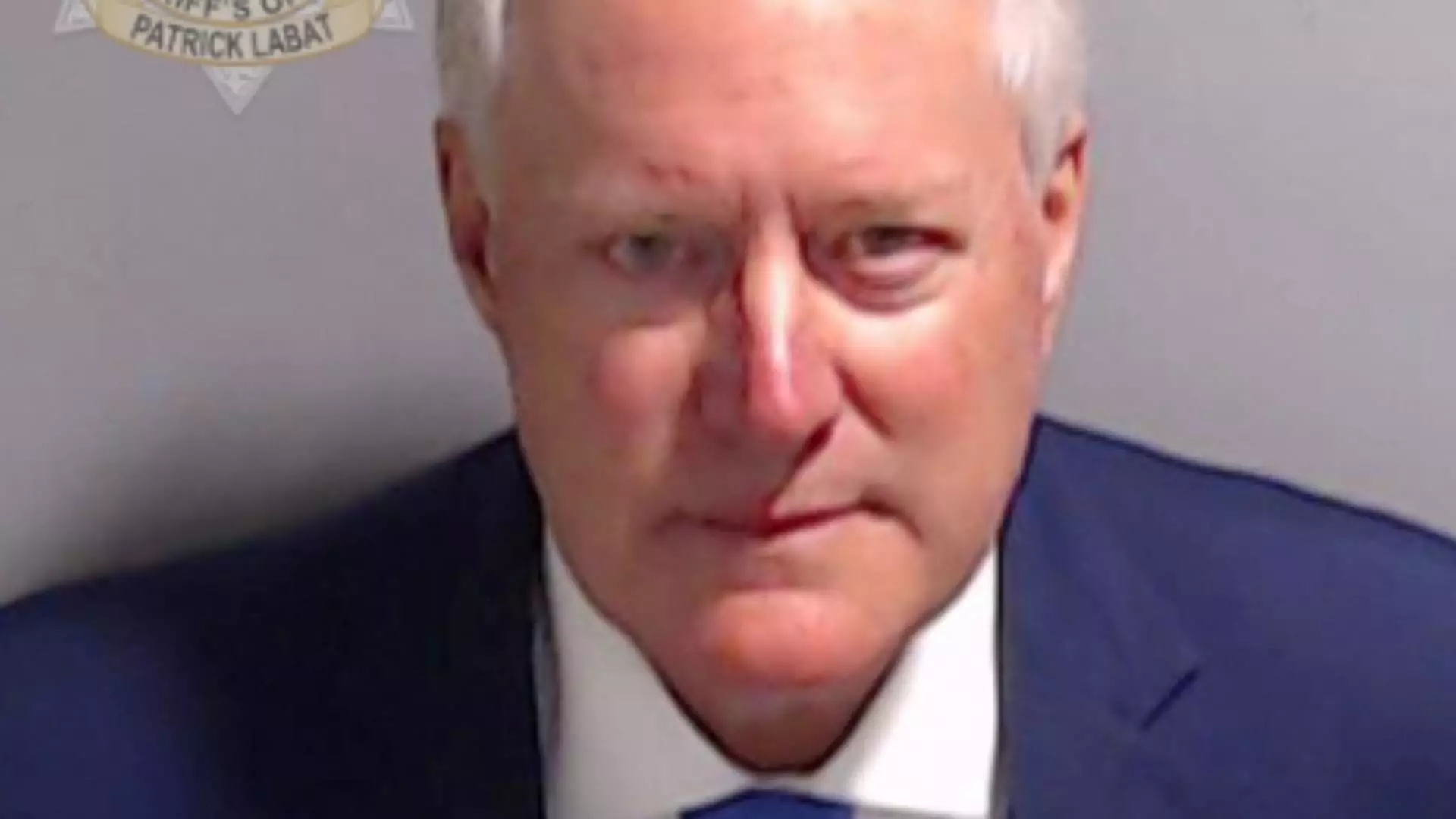In a significant setback for former White House chief of staff Mark Meadows, a judge has rejected his request to move his Georgia election conspiracy criminal case to federal court in Atlanta. This decision effectively means that Meadows’ case will remain in Fulton County Superior Court, a state court in Atlanta. The implications of this ruling have far-reaching consequences for Meadows and the co-defendants involved in the case.
Meadows, along with former President Donald Trump and 17 other co-defendants, was indicted last month by a grand jury in Fulton County Superior Court. The charges are related to their alleged efforts to reverse Trump’s loss in Georgia’s 2020 election to President Joe Biden. This indictment, which highlights the seriousness of the allegations, has led to a legal battle over the jurisdiction of the case.
Interestingly, Trump’s lawyer recently informed a Fulton County judge that the former president might also seek to have his own case transferred to federal court. This development raises the stakes of the legal proceedings and adds another layer of complexity to the overall situation. Four other defendants have already made similar requests, indicating a shared belief that federal court may provide a more favorable outcome.
U.S. District Judge Steve Jones, presiding over the federal court in Atlanta, meticulously analyzed Meadows’ request and ultimately concluded that it lacked the necessary grounds for a transfer to federal court. Jones cited a statute that authorizes the removal of legal cases against federal officers from state courts. According to his thorough evaluation, Meadows failed to demonstrate that the actions leading to his prosecution were directly related to his federal office.
In his ruling, Judge Jones emphasized that only one of the eight alleged criminal acts committed by Meadows could potentially be linked to his federal office. This act involved Meadows asking Rep. Scott Perry for phone numbers for Pennsylvania’s legislative leaders on behalf of Trump. However, the judge argued that this action alone was insufficient to warrant a transfer to federal court. Jones argued that the core actions giving rise to the charges against Meadows were taken in his capacity as a member of the Trump campaign, with the intention of influencing state election activities.
The judge’s decision was further strengthened by Meadows’ own testimony, in which he stated that working for the Trump campaign would be beyond the scope of a White House Chief of Staff. This admission contradicted Meadows’ attempts to argue that his actions were part of his official duties as a federal officer. Judge Jones noted that Meadows’ alleged association with post-election activities did not directly relate to his role as White House Chief of Staff or his executive branch authority.
While Meadows’ case has been firmly resolved, the fate of the other defendants remains uncertain. Although Judge Jones stated that his rejection of Meadows’ removal request would not impact the requests made by the other co-defendants, it is unlikely to bode well for their chances. Among the defendants, Meadows was seen as having the best shot at transferring the case to federal court due to his federal post and residency in Washington, D.C. during the alleged crimes.
The potential transfer of the case to federal court had generated speculation about its potential impact on the overall outcome. The federal court in Atlanta was viewed as a more favorable venue for the defendants, primarily because its jury pool is drawn from a larger area, which likely includes more Republicans. However, with Meadows’ request being denied, this advantage might now be elusive for the remaining co-defendants.
The court’s rejection of Mark Meadows’ request to move his Georgia election conspiracy criminal case to federal court is a significant blow to his legal strategy. Judge Jones carefully assessed the facts and concluded that Meadows had failed to establish a strong enough connection between his alleged actions and his federal office. This decision has created uncertainty for the other co-defendants who had hoped for a similar transfer. As the legal battle continues, the outcome of this case will undoubtedly have broader implications for individuals involved in election-related controversies.


Leave a Reply